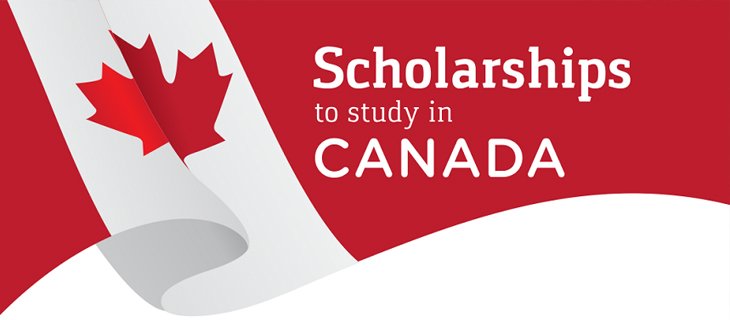Canada is a popular destination for students worldwide, renowned for its world-class education, diverse culture, and welcoming environment. However, pursuing higher education in Canada can be a significant financial undertaking. Scholarships can make a Canadian education more accessible by easing the financial burden and opening doors to endless opportunities.
This comprehensive guide explores the types of scholarships available in Canada, how to apply, and practical tips to increase your chances of success.
Why Study in Canada?
Before jumping into scholarships, it’s worth understanding why Canada is such a coveted study destination.
- World-Class Education: Canadian universities like the University of Toronto, McGill University, and the University of British Columbia are recognized globally for their academic excellence.
- Affordable Tuition Comparatively: While not the cheapest, Canada’s tuition fees are often more affordable than the U.S. or U.K.
- Post-Graduation Opportunities: Canada offers work permits for international students after graduation, making it easier to transition from study to work.
- Cultural Diversity: With students from all over the world, Canada celebrates diversity, fostering a welcoming and inclusive atmosphere on campuses.
Now that you know why studying in Canada is appealing, let’s focus on securing scholarships to make your dream a reality.
Table of Contents
Types of Scholarships Available in Canada
Scholarships in Canada fall into different categories, each targeting specific student needs, academic achievements, or fields of study. Here are the main types of scholarships you should consider.
1. Government-Funded Scholarships
Canada’s government offers numerous scholarships for international students to encourage global talent. Below are some examples:
| Scholarship Name | Amount/Funding | Eligibility Criteria |
|---|---|---|
| Vanier Canada Graduate Scholarship | CA$50,000 per year for 3 years | Open to doctoral students meeting high academic standards. |
| Banting Postdoctoral Fellowship | CA$70,000 per year for 2 years | Open to postdoctoral researchers in health, science, and engineering. |
| Canada-ASEAN Scholarships | CA$10,200 for undergraduates and researchers | Open to citizens from ASEAN countries pursuing study or research. |
2. University-Specific Scholarships
Many Canadian universities offer scholarships directly to international students based on academic achievement or financial need.
- Lester B. Pearson International Scholarships (University of Toronto): Full tuition coverage for undergraduate students demonstrating academic excellence and leadership potential.
- UBC International Scholars Program (University of British Columbia): Scholarships based on merit and financial need.
- York University International Student Scholarship (York University): Ranges from CA$20,000 to CA$35,000 annually for international students.

3. Private Scholarships and Foundations
Private organizations and foundations also fund scholarships for particular fields of study or demographics. Examples include:
- Trudeau Foundation Scholarships: For doctoral candidates in social sciences and humanities.
- Shastri Indo-Canadian Institute Scholarships: For Indian students applying to Canadian universities.
4. Need-Based Scholarships
While many scholarships are merit-based, some cater specifically to students requiring financial assistance. These scholarships often require you to provide proof of income or financial need.
5. Sports and Extracurricular Scholarships
If you’re an athlete or excel in activities such as arts or music, you may qualify for athletic or extracurricular-based scholarships.
How to Apply for Scholarships in Canada
Applying for scholarships can feel overwhelming, but staying organized and following these steps can help simplify the process.
Step 1: Research Scholarships Early
Start your search at least a year before your intended start date. Many scholarships have deadlines well ahead of the academic year. Use platforms like the university websites, EduCanada, and scholarship aggregators to find opportunities.
Step 2: Meet Eligibility Requirements
Each scholarship has specific requirements, such as academic scores, extra-curricular achievements, or nationality restrictions. Ensure you meet all criteria before applying.
Step 3: Gather Required Documents
Commonly required documents include:
- Academic transcripts
- Letters of recommendation
- Personal statements or essays
- Proof of English proficiency (TOEFL/IELTS)
- Resumé or CV
Step 4: Craft a Strong Application
Your application is your chance to stand out. Use these tips:
- Personalize essays to explain how the scholarship will impact you and your academic goals.
- Use clear, concise language.
- Highlight achievements relevant to the scholarship’s mission.
Step 5: Follow Deadlines
Mark deadlines on your calendar and submit applications well in advance. Late submissions are frequently disqualified.
Step 6: Apply to Multiple Scholarships
The more applications you submit, the higher your chances of securing funding. Cast your net wide and include various scholarship types.
FAQ About Scholarships in Canada
1. Are scholarships in Canada only for academically exceptional students?
No, many scholarships also consider factors like financial need, extracurricular activities, community service, or athletics.
2. Can I apply for multiple scholarships?
Absolutely! Applying for multiple scholarships increases your chances of securing funding.
3. Are there scholarships for graduate students in Canada?
Yes, many scholarships, such as the Vanier Canada Graduate Scholarship or university-specific graduate awards, are available for master’s and Ph.D. students.
4. How competitive are scholarships in Canada?
Scholarships can be competitive, but your chances depend on the scholarship type and its selection criteria. Taking time to prepare a strong, tailored application will improve your likelihood.
5. Do I need to provide an English proficiency certificate for scholarships?
Most Canadian scholarships, especially university-specific ones, require proof of English proficiency (e.g., IELTS or TOEFL). However, some may waive this requirement under certain conditions.
Achieve Your Dream to Study in Canada
Securing a scholarship can significantly impact your ability to pursue an education in Canada without financial stress. By understanding the types of scholarships available, preparing a strong application, and applying early, you can increase your chances of success.
However, navigating this process can still feel like a challenge. If you’re looking for personalized guidance, connect with educational consultants or reach out to scholarship advisors at the institutions you’re targeting.
Your dream of studying in Canada is closer than you think—start planning today!



4 Comments
Pingback: Indian Food Prices in Canada (Cost + Tips to Save)
Pingback: Top Public Universities in Canada
Pingback: Newton Crypto App – Secure, Commission-Free Trading
Pingback: Why Live in Canada? Discover the Benefits of Life in the True North